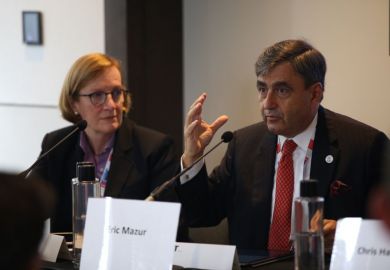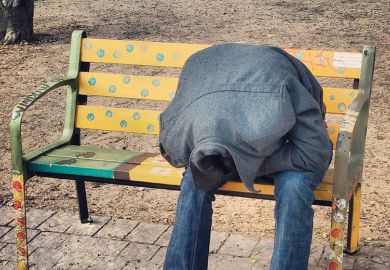The lecture is dead. And, according to Carl Wieman, there should be no Lazarus-style resurrection. Wieman, a Nobel prizewinning advocate of active learning from Stanford University, argued here, just over a year ago, that belief in the value of traditional lecturing was akin to belief in bloodletting in an era of modern, evidence-based medicine. And so in our contemporary higher education era, where students are at the heart of the system, and ensuring their satisfied experience is paramount, the lecture is out, and student-centred forms of active learning – the “flipped classroom”, student-led enquiry and the like – are most definitely à la mode.
Wieman’s central criticism of the lecture is that it is antithetical to the ideal of active learning – where students demonstrate that they are positively engaged with course material. But this fails to understand what a lecture is; why it is, and should remain, at the cutting edge of higher education. What is needed is a philosophical defence of the traditional lecture that stresses what it is: a mode of address.
The lecture must not be understood in terms of a unidirectional mode of transmission – a monologic form of communication in which students are merely passive recipients. It should instead be seen as a special form of human encounter where the voice of the lecturer is modulated specifically for the hearing of the student. This understanding may help to rebut one of the more unhelpful characterisations of the university lecture cited by critics: that it is merely one confident, central speaker possessing, and broadcasting, expert knowledge to a less-than-expert audience. Such an idea badly short-changes the lecture, which is, in fact, the initiation of a dialogic relationship between teacher and student. To address another is to demand a response from them. The American philosopher Stanley Cavell wrote in 2005 that in this kind of address: “I declare my standing with you and single you out, demanding a response in kind from you, and a response now, so making myself vulnerable to your rebuke.”
When lecturing, we do not know (and presumably should not know) how our students will interpret our words. But they do respond. They may do so with excitement, bafflement, hostility or even disinterest. But these are all valid, and active, responses to the address of the lecturer. She invites students to see the world in a particular way, and they may do so, or refuse to, or suspend judgement. Far from being a “sage on the stage”, with all the connotations of an unlistening and remote academic, the lecturer is instead deeply dialogic, committing herself to an active relationship with students. Thought of in this way, the lecture is not only a site of transformation, but also a site of risk. It is where the self is rendered vulnerable to the other’s reproof, which might lead to awkward and messy moments that mark genuine and meaningful encounter.
The lecture’s importance in university learning is often maligned, but it is the site where the essence of learning is found. In this space where academics speak and truly mean what they are saying, there is a move from performance of a monologue to the passion of the dialogic encounter. If we understand the lecture, then, as a mode of address, we understand the university more generally as a more open, more vulnerable and, ultimately, more educational place.
Amanda Fulford is a reader in philosophy of education at Leeds Trinity University, and Áine Mahon is assistant professor at University College Dublin’s School of Education.
Register to continue
Why register?
- Registration is free and only takes a moment
- Once registered, you can read 3 articles a month
- Sign up for our newsletter
Subscribe
Or subscribe for unlimited access to:
- Unlimited access to news, views, insights & reviews
- Digital editions
- Digital access to THE’s university and college rankings analysis
Already registered or a current subscriber?





